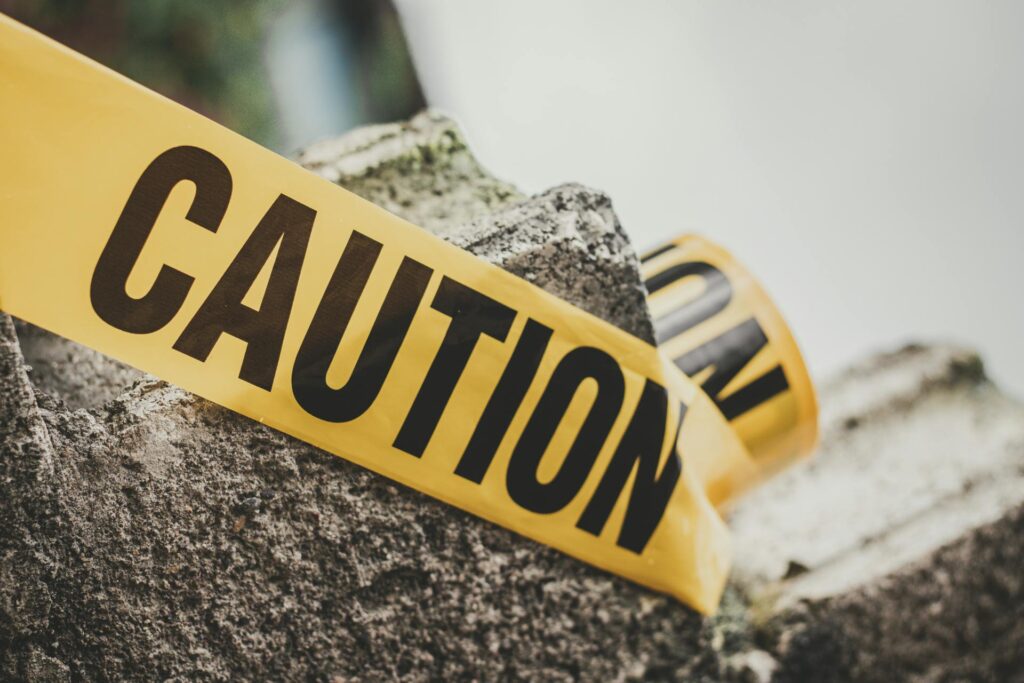Identifying whether a squatter may be dangerous can be challenging, as it depends on various factors and circumstances. While not all squatters are dangerous, it’s essential to be cautious and aware of potential signs that may indicate a squatter could pose a threat to your safety or property. Hence the need for landlords to learn how to identify dangerous squatters.
Here are some indicators to consider before dealing with squatters:
- Violent or Aggressive Behavior:
- This is the obvious one. If you observe squatters displaying aggressive or violent behavior, such as verbal threats, physical confrontations, or brandishing weapons, it is a significant red flag. Sometimes, just the way people carry themselves and/or dress can imply that they are dangerous. For squatters displaying violent or aggressive behavior, please be sure to communicate carefully with them.
- Drug or Alcohol Abuse:
- Squatters who are visibly under the influence of drugs or alcohol may exhibit unpredictable and potentially dangerous behavior.
- Criminal History:
- If you have reason to believe that squatters have a criminal history involving violence, property crimes, or other serious offenses, this could indicate a potential risk.
- Refusal to Leave Peacefully:
- Squatters who refuse to leave the property peacefully when confronted by the property owner or law enforcement may be more likely to engage in confrontational behavior.
- Occupation of Hazardous Properties:
- Squatting in properties that are structurally unsound, contaminated, or hazardous may indicate that squatters are willing to take risks, potentially endangering themselves and others.
- Hoarding or Property Damage:
- Squatters who engage in hoarding or extensive property damage may demonstrate a disregard for property rights and boundaries, potentially leading to confrontations.
- Resistance to Authority:
- Squatters who resist law enforcement or show a strong aversion to cooperating with authorities may raise concerns about their intentions.
- Threats or Intimidation:
- Any direct threats, intimidation, or harassment by squatters should be taken seriously and reported to law enforcement immediately.
- Isolation or Seclusion:
- Squatters who isolate themselves from the community, avoid contact with neighbors, and are secretive about their presence may raise suspicion.
- Multiple Individuals Squatting Together:
- A group of squatters occupying a property together may be more challenging to manage and may increase the potential for conflicts.
- Possession of Weapons or Dangerous Items:
- If you observe squatters with weapons, tools, or items that could be used as weapons (e.g., knives, bats), it may indicate a potential threat.
- Mental Health Concerns:
- Squatters with untreated or severe mental health issues may display erratic or unpredictable behavior that can pose a safety risk.
It’s important to note that while these indicators on how to identify dangerous squatters may raise concerns, they do not necessarily mean that all squatters exhibiting these behaviors are inherently dangerous. Some individuals may be struggling with personal issues, homelessness, or housing insecurity, which can lead to challenging behaviors.
If you suspect that squatters on your property may be dangerous, prioritize your safety and the safety of others. Avoid confronting them directly and contact local law enforcement immediately to report the situation. Law enforcement can assess the situation, take appropriate actions to ensure the protection of your rights as a landlord.
You can completely skip the hurdle of dealing with dangerous squatters, by selling your house with squatters to Nevada Cash Offer. We’ll be happy to make you an offer. Contact us and let’s get started.


